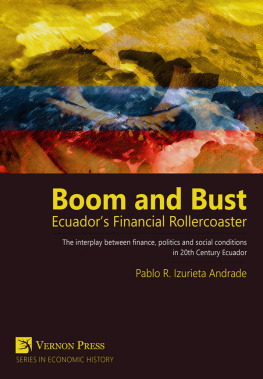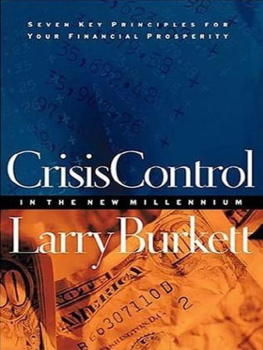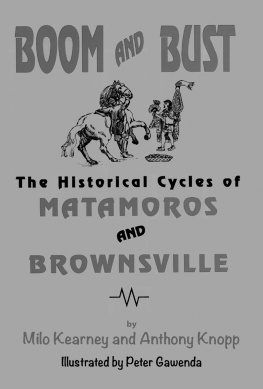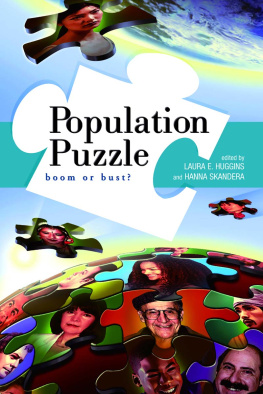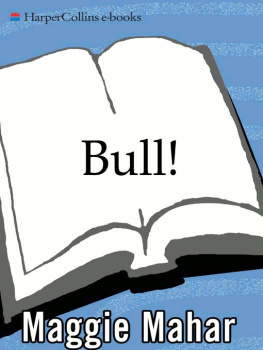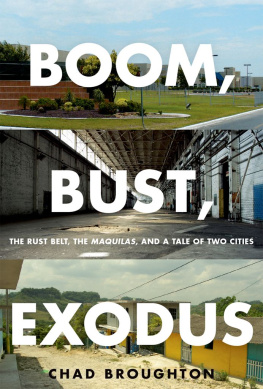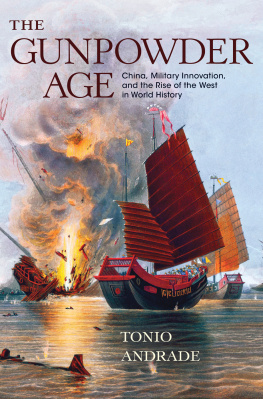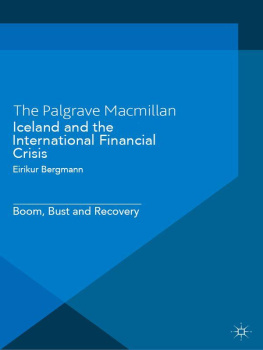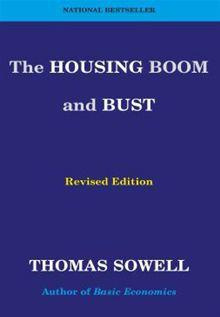Boom & Bust: Ecuadors
Financial Rollercoaster
The Interplay between Finance, Politics
and Social Conditions in 20th century Ecuador
Pablo R. Izurieta Andrade

Copyright 2015 Vernon Press, an imprint of Vernon Art and Science Inc, on behalf of the author.
All rights reserved. No part of this publication may be reproduced, stored in a retrieval system, or transmitted in any form or by any means, electronic, mechanical, photocopying, recording, or otherwise, without the prior permission of Vernon Art and Science Inc.
www.vernonpress.com
In the Americas: Vernon Press 1000 N West Street, Suite 1200, Wilmington, Delaware 19801 United States | In the rest of the world Vernon Press C/Sancti Espiritu 17, Malaga, 29006 Spain |
Library of Congress Control Number: 2015942450
ISBN: 978-1-62273-142-8
Images used with permission. Product and company names mentioned in this work are the trademarks of their respective owners. While every care has been taken in preparing this work, neither the author nor Vernon Art and Science Inc. may be held responsible for any loss or damage caused or alleged to be caused directly or indirectly by the information contained in it.
Synopsis
This work proposes a connection of financial circumstances with major socio-political events in 20 th -century Ecuador. It highlights the state of the nations economy as a determinant factor in the outcome of events. Throughout the history of Ecuador, the ambivalent evolution of major political and social events such as the stability of serving presidents, coups and war, has had an interesting and direct relationship to the financial environment. If the economy was healthy, did the country also experience stability? If it went into disarray, did the non-financial environment follow? Data collected from the Central Bank of Ecuador , unpublished diplomatic papers, and personal documents from relevant historical figures, as well as from the work of previous historians, indicate a strong effect of financial and economic performance on major political and social events. Particularly, given the countrys dependence on three main commodities: cacao , bananas and oil , the performance of these significantly shaped 20 th -century Ecuadorian history.
To my mother and grandmother
Acknowledgements
I would like to acknowledge all the people who in one way or another helped me complete this book . Mention is needed for my family, whose support has allowed me to complete this work, especially my grandmother, mother, and uncle. I would also like to acknowledge all the people at the different universities that have aided me in the research, especially Professor Candelaria Garay at Harvard University for all her wonderful support.
Table of Contents
List of Tables
List of Pictures
Introduction
Every nation on Earth is shaped by major social and political events. Government collapses, a coup dtat , war, social unrest are all examples of what constitutes a major sociopolitical event. Some events are more transcendental than others, and some seem to shift the course of history altogether. In the South American nation of Ecuador, these undeniably include the Liberal Revolution of 1895, the Julian Revolution of 1925, the wars with Peru , and the continuous ousting of presidents. But w hat caused these events? Was it strong intellectual ideals? Political motivations? Or is there an economically motivated explanation?
Take Ecuadors ratification of the Ro Protocol (a major event). American oil companies, through the United States government, pressured Ecuador into signing the Rio Protocol, effectively relinquishing over 200,000 km

